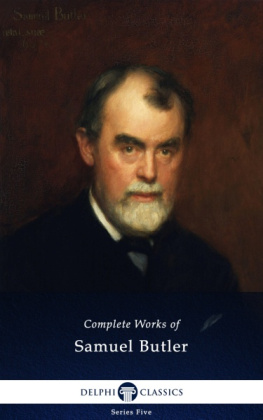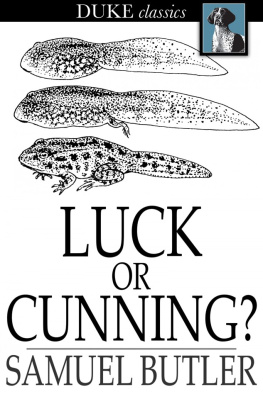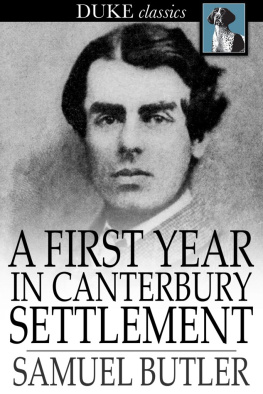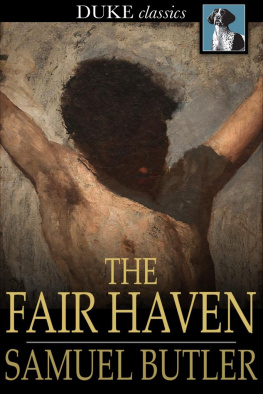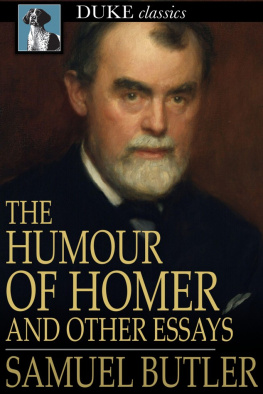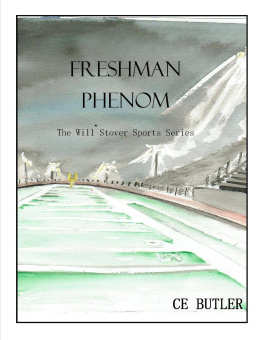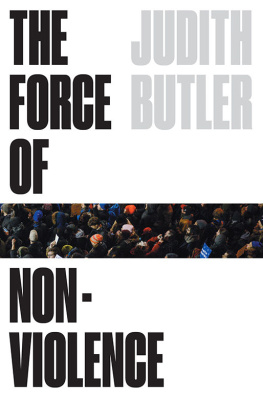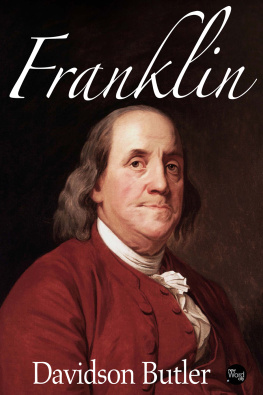Samuel Butler - God the Known and God the Unknown
Here you can read online Samuel Butler - God the Known and God the Unknown full text of the book (entire story) in english for free. Download pdf and epub, get meaning, cover and reviews about this ebook. year: 2011, publisher: Barnes & Noble, genre: Science. Description of the work, (preface) as well as reviews are available. Best literature library LitArk.com created for fans of good reading and offers a wide selection of genres:
Romance novel
Science fiction
Adventure
Detective
Science
History
Home and family
Prose
Art
Politics
Computer
Non-fiction
Religion
Business
Children
Humor
Choose a favorite category and find really read worthwhile books. Enjoy immersion in the world of imagination, feel the emotions of the characters or learn something new for yourself, make an fascinating discovery.
- Book:God the Known and God the Unknown
- Author:
- Publisher:Barnes & Noble
- Genre:
- Year:2011
- Rating:3 / 5
- Favourites:Add to favourites
- Your mark:
- 60
- 1
- 2
- 3
- 4
- 5
God the Known and God the Unknown: summary, description and annotation
We offer to read an annotation, description, summary or preface (depends on what the author of the book "God the Known and God the Unknown" wrote himself). If you haven't found the necessary information about the book — write in the comments, we will try to find it.
Published in 1917, this volume is based on a series of articles published by Butler in the 1870s and revised by him prior to his death. Here Butler sets forth his conception of the divine, as a evolutionary force that encompasses all living things and tends toward ever-greater unity and self-awareness.
God the Known and God the Unknown — read online for free the complete book (whole text) full work
Below is the text of the book, divided by pages. System saving the place of the last page read, allows you to conveniently read the book "God the Known and God the Unknown" online for free, without having to search again every time where you left off. Put a bookmark, and you can go to the page where you finished reading at any time.
Font size:
Interval:
Bookmark:
SAMUEL BUTLER

This 2011 edition published by Barnes & Noble, Inc.
All rights reserved. No part of this publication may be reproduced, stored in a retrieval system, or transmitted, in any form or by any means, electronic, mechanical, photocopying, recording, or otherwise, without prior written permission from the publisher.
Barnes & Noble, Inc.
122 Fifth Avenue
New York, NY 10011
ISBN: 978-1-4114-4596-3
CHAPTER I
INTRODUCTION
MANKIND has ever been ready to discuss matters in the inverse ratio of their importance, so that the more closely a question is felt to touch the hearts of all of us, the more incumbent it is considered upon prudent people to profess that it does not exist, to frown it down, to tell it to hold its tongue, to maintain that it has long been finally settled, so that there is now no question concerning it.
So far, indeed, has this been carried through all time past that the actions which are most important to us, such as our passage through the embryonic stages, the circulation of our blood, our respiration, etc. etc., have long been formulated beyond all power of reopening question concerning themthe mere fact or manner of their being done at all being ranked among the great discoveries of recent ages. Yet the analogy of past settlements would lead us to suppose that so much unanimity was not arrived at all at once, but rather that it must have been preceded by much smouldering discontent, which again was followed by open warfare; and that even after a settlement had been ostensibly arrived at, there was still much secret want of conviction on the part of many for several generations.
There are many who see nothing in this tendency of our nature but occasion for sarcasm; those, on the other hand, who hold that the world is by this time old enough to be the best judge concerning the management of its own affairs will scrutinise this management with some closeness before they venture to satirise it; nor will they do so for long without finding justification for its apparent recklessness; for we must all fear responsibility upon matters about which we feel we know but little; on the other hand we must all continually act, and for the most part promptly. We do so, therefore, with greater security when we can persuade both ourselves and others that a matter is already pigeon-holed than if we feel that we must use our own judgment for the collection, interpretation, and arrangement of the papers which deal with it. Moreover, our action is thus made to appear as if it received collective sanction; and by so appearing it receives it. Almost any settlement, again, is felt to be better than none, and the more nearly a matter comes home to everyone, the more important is it that it should be treated as a sleeping dog, and be let to lie, for if one person begins to open his mouth, fatal developments may arise in the Babel that will follow.
It is not difficult, indeed, to show that, instead of having reason to complain of the desire for the postponement of important questions, as though the world were composed mainly of knaves or fools, such fixity as animal and vegetable forms possess is due to this very instinct. For if there had been no reluctance, if there were no friction and vis inerti to be encountered even after a theoretical equilibrium had been upset, we should have had no fixed organs nor settled proclivities, but should have been daily and hourly undergoing Protean transformations, and have still been throwing out pseudopodia like the amba. True, we might have come to like this fashion of living as well as our more steady-going system if we had taken to it many millions of ages ago when we were yet young; but we have contracted other habits which have become so confirmed that we cannot break with them. We therefore now hate that which we should perhaps have loved if we had practised it. This, however, does not affect the argument, for our concern is with our likes and dislikes, not with the manner in which those likes and dislikes have come about. The discovery that organism is capable of modification at all has occasioned so much astonishment that it has taken the most enlightened part of the world more than a hundred years to leave off expressing its contempt for such a crude, shallow, and preposterous conception. Perhaps in another hundred years we shall learn to admire the good sense, endurance, and thorough Englishness of organism in having been so averse to change, even more than its versatility in having been willing to change so much.
Nevertheless, however conservative we may be, and however much alive to the folly and wickedness of tampering with settled convictionsno matter what they arewithout sufficient cause, there is yet such a constant though gradual change in our surroundings as necessitates corresponding modification in our ideas, desires, and actions. We may think that we should like to find ourselves always in the same surroundings as our ancestors, so that we might be guided at every touch and turn by the experience of our race, and be saved from all self-communing or interpretation of oracular responses uttered by the facts around us. Yet the facts will change their utterances in spite of us; and we, too, change with age and ages in spite of ourselves, so as to see the facts around us as perhaps even more changed than they actually are. It has been said, "Tempora mutantur nos et mutamur in illis." The passage would have been no less true if it had stood, "Nos mutamur et tempora mutantur in nobis.'' Whether the organism or the surroundings began changing first is a matter of such small moment that the two may be left to fight it out between themselves; but, whichever view is taken, the fact will remain that whenever the relations between the organism and its surroundings have been changed, the organism must either succeed in putting the surroundings into harmony with itself, or itself into harmony with the surroundings; or must be made so uncomfortable as to be unable to remember itself as subjected to any such difficulties, and therefore to die through inability to recognise its own identity further.
Under these circumstances, organism must act in one or other of these two ways: it must either change slowly and continuously with the surroundings, paying cash for everything, meeting the smallest change with a corresponding modification so far as is found convenient; or it must put off change as long as possible, and then make larger and more sweeping changes.
Both these courses are the same in principle, the difference being only one of scale, and the one being a miniature of the other, as a ripple is an Atlantic wave in little; both have their advantages and disadvantages, so that most organisms will take the one course for one set of things and the other for another. They will deal promptly with things which they can get at easily, and which lie more upon the surface; those, however, which are more troublesome to reach, and lie deeper, will be handled upon more cataclysmic principles, being allowed longer periods of repose followed by short periods of greater activity. Animals breathe and circulate their blood by a little action many times a minute; but they feed, some of them, only two or three times a day, and breed for the most part not more than once a year, their breeding season being much their busiest time. It is on the first principle that the modification of animal forms has proceeded mainly; but it may be questioned whether what is called a sport is not the organic expression of discontent which has been long felt, but which has not been attended to, nor been met step by step by as much small remedial modification as was found practicable: so that when a change does come it comes by way of revolution. Or, again (only that it comes to much the same thing), a sport may be compared to one of those happy thoughts which sometimes come to us unbidden after we have been thinking for a long time what to do, or how to arrange our ideas, and have yet been unable to arrive at any conclusion.
Font size:
Interval:
Bookmark:
Similar books «God the Known and God the Unknown»
Look at similar books to God the Known and God the Unknown. We have selected literature similar in name and meaning in the hope of providing readers with more options to find new, interesting, not yet read works.
Discussion, reviews of the book God the Known and God the Unknown and just readers' own opinions. Leave your comments, write what you think about the work, its meaning or the main characters. Specify what exactly you liked and what you didn't like, and why you think so.


